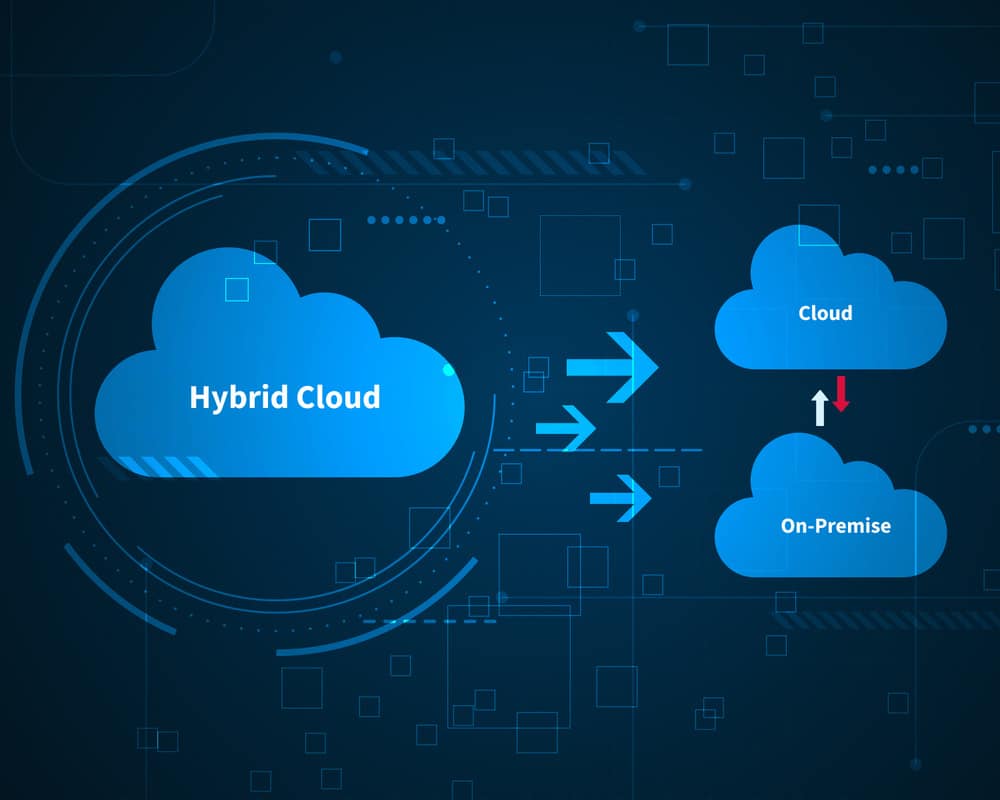5 Reasons Why Cloud Engineers Suggest Hybrid Cloud
A hybrid Cloud is a combination of public and private cloud services connected together to create a single, unified cloud solution. This type of setup allows organizations to reap the benefits of both platforms while also opening the door for data sharing and collaboration. With Hybrid Cloud, organizations can take advantage of the scalability, agility, and cost-effectiveness of the public cloud while still retaining control of important data in a private cloud.
One of the most exciting aspects of a hybrid cloud is the ability to leverage hyperconverged infrastructure. Hyperconverged infrastructure is a type of cloud computing system that bundles computing, storage, and networking together. This type of system allows businesses to take advantage of the scalability, flexibility, and cost savings of the cloud without sacrificing the control and security of a private cloud.
Many cloud engineers are advocating for the use of hybrid clouds, which combine both public and private cloud elements. Here are five compelling reasons why hybrid cloud may be the best choice for your organization:
Increased Scalability and Flexibility
Cloud engineers have long been suggesting the use of hybrid clouds due to the increased scalability and flexibility they offer. Hybrid clouds bridge the gap between public and private cloud computing, allowing businesses to take advantage of the scalability and cost-efficiency of public clouds while still maintaining the security and privacy of private clouds. With the hybrid cloud model, businesses can easily scale up their operations without having to worry about the limited capabilities of a single cloud. Furthermore, the flexibility of the hybrid cloud model allows businesses to customize their IT infrastructure to meet their specific needs better.
Increased Reliability and Availability
Reliability and availability are essential for cloud computing, and hybrid clouds are designed to provide both. By combining the public cloud’s scalability and access to resources with the private cloud’s security and control, hybrid clouds provide an optimal balance for users. This means that businesses can keep their data and applications secure while also having access to the powerful public cloud infrastructure.
Improved Backup and Recovery
Cloud engineers are always advocating for hybrid cloud solutions due to their improved backup and recovery capabilities. With a hybrid cloud, organizations have the flexibility to store and access their data in more than one location. This allows for more reliable backups and quicker recovery times. Plus, hybrid cloud solutions can use multiple cloud service providers, which allows for better load balancing and improved performance.
Better Security and Compliance
Organizations are always looking for ways to keep their data secure and maintain compliance standards. This is why cloud engineers suggest a hybrid cloud model as an optimal solution. The hybrid cloud model combines the best of both private and public cloud infrastructure and provides organizations with the security and compliance they need. With a hybrid cloud model, organizations can create a secure environment that ensures their data is protected and that they are adhering to any applicable compliance regulations. Additionally, hybrid clouds provide organizations with the flexibility they need to store data in the most cost-effective and secure way possible.
Cost Savings and Increased Efficiency
Cloud engineers suggest hybrid cloud for many reasons, but the two most important are cost savings and increased efficiency. With a hybrid cloud, companies can scale up quickly and easily, reducing the need for expensive hardware and storage costs, as well as eliminating the need for extra personnel to manage the cloud infrastructure.
























